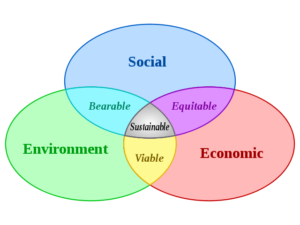Lynda Bourne

Written Articles
The PMBOK® Guide and most modern management texts emphasise the importance of leadership and motivation over directive control. This is for a very good reason, as modern management evolved during the Industrial Revolution, the function of most workers was to ‘man the equipment’ to literally keep the wheels of industry turning. In the 21st century, […]
Most issues and points of difference and even bad events are resolved without conflict. Negotiation, discussion and helpful 3rd party input resolve the issue. Even when the issue is stressful and damaging (eg someone runs into your car…) most of the time people deal with the situation without descending into acrimony. But at other times […]
One of the less well understood parts of the PMBOK® Guide 5th Edition has been the significant refinement in the way project data is transformed into useful project reports; mainly due to the distributed information. This short article will map the flow. The starting point is Chapter 3.8 – Project Information This section recognises information […]
One of the more interesting communication backfires of the last few weeks has been the widespread reaction to the Australian government’s chief business adviser, Maurice Newman’s ‘opinion piece’ in the The Australian newspaper: ‘We’re ill-prepared if the iceman cometh’. The construct of the article uses two rhetorical ploys that can be effective if applied subtly […]
Sun Tzu wrote The Art of War nearly 2500 years ago; his ideas have been widely translated and are regularly used as a guide for management thinking. This post will take a different perspective, ‘Sun Tzu and the art of stakeholder engagement’! After all “The greatest victory is that which requires no battle”, which is […]
Have you ever wondered why some people are always late for meetings or why some people get upset when you are late but others don’t worry too much?? The chances are you are dealing with people who see time differently. For some, time flows from the future into the present and on to the past […]
Everyone talks about motivation, work-life balance and developing a productive team, only a few realise the importance of ‘happiness’ within this equation. This post will look at a measureable change in team performance created by a change in emphasis by ‘management’ to bring a sense of fun back into a very seriously fought competition. As […]
Communication occurs at many levels and the result of any one communication is based on what the receiver perceives as important[1]. Asking questions can be a very effective way of communicating and influencing stakeholders[2], but asking the wrong questions can easily be the cause of undesirable outcomes; care is needed! One of the key communication […]
The PMBOK® Guide 5th Edition recognizes the importance of organizations realizing value from their investment in a project. But what exactly is ‘value’? The PMBOK® Guide (1.6) suggests value is a concept that is unique to each organization and encompasses the total sum of all tangible and intangible ‘value elements’. Determining the tangible elements is […]
“Affairs are easier of entrance than of exit, and it is but common prudence to see our way out before we venture in” (Aesop 620 BC-560 BC). Projects are an arena that can be fraught with conflict. Disputes and ‘fights’ of all types occur, ranging from $million claims, through many types of negotiation, to personal […]


